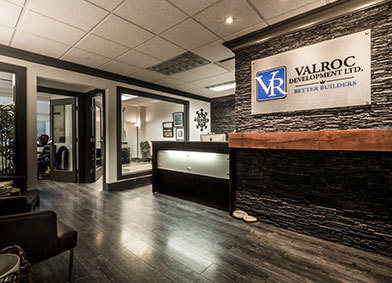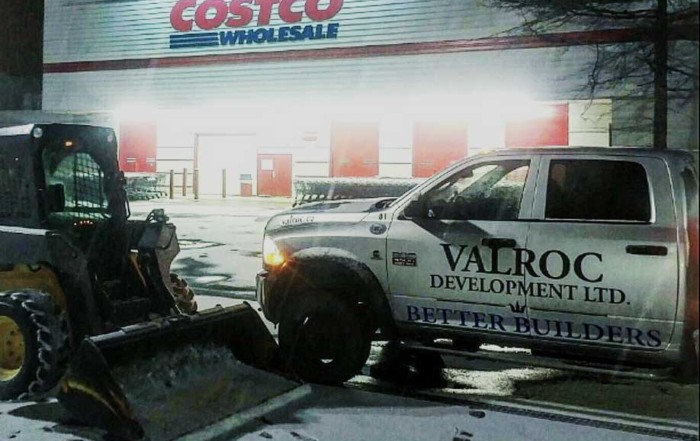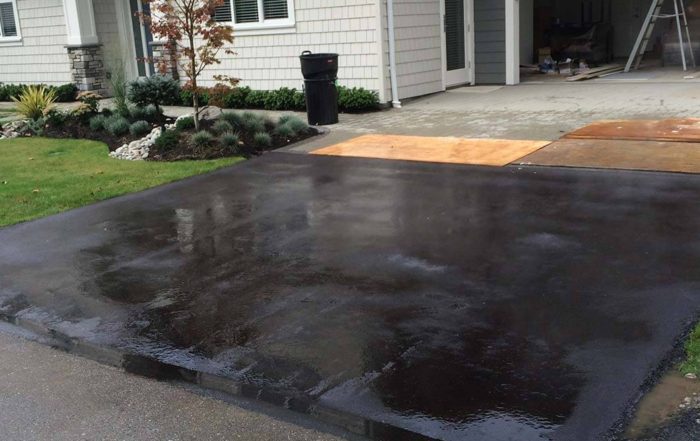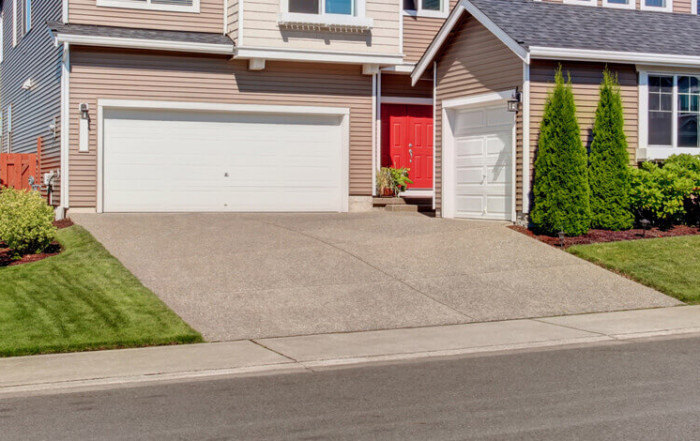Concrete Driveway Cracks
Why it’s so Important to Avoid These Common Mistakes Before and After Driveway Installation
Why it’s so Important to Avoid These Common Mistakes Before and After Driveway Installation
Question for the Valroc Team:
I’m installing a new concrete driveway and I’d like to take some precautions before my contractor gets started. Do you have any tips?
Answer:
Absolutely. Moisture is the number one cause of premature cracking concrete, especially in areas that frequently freeze and thaw. By sealing your driveway after installation, and once every five years, you’ll keep a lot of that moisture out of the base. Also, installing barriers that keep growing roots from affecting your driveways base are recommended for areas close to trees. We’ve described some more precautions you can take in detail below.
Regards,
The Valroc Team
Question for the Valroc Team:
I’m installing a new concrete driveway and I’d like to take some precautions before my contractor gets started. Do you have any tips?
Answer:
Absolutely. Moisture is the number one cause of premature cracking concrete, especially in areas that frequently freeze and thaw. By sealing your driveway after installation, and once every five years, you’ll keep a lot of that moisture out of the base. Also, installing barriers that keep growing roots from affecting your driveways base are recommended for areas close to trees. We’ve described some more precautions you can take in detail below.
Regards,
The Valroc Team
We’re approached all the time about the causes of concrete driveway cracks and more importantly – how to prevent them. Concrete driveways crack for a variety of reasons, some preventable, and some often not. Let’s jump right into it.
Why do concrete cracks form?
The main reason concrete cracks form is unavoidable and will happen to every concrete driveway eventually; time. Over time, the aggregate that binds the concrete together begins to loosen, moisture enters, the concrete begins to expand and contract, and cracks appear. Although this is an unavoidable occurrence, there are a number of things that will cause this to happen much sooner than it should.
Poorly Installed Driveway Base
The most common cause of premature cracks in a concrete driveway is improper base installation. It may seem like the best route to get the best price you can find, but cheap materials and poor installation technique will surely come back to haunt you. Contractors who install an improper subbase to ‘save’ time and money use a soft material like sand or dirt. Once this material gathers moisture, the freeze-thaw cycles cause it to expand and contract. This is a sure recipe for unnecessary pressure on the concrete – causing cracks.
Salt for Melting Ice
Due to freeze-thaw during harsh winters, concrete surfaces already undergo a ton of pressure from the weather. When salt is applied to it, it speeds up the thawing process of the ice and snow. From there, the melted water seeps directly into the surface of the driveway where it refreezes. This causes more pressure on the structure and results in cracking.
Tree Roots
Just as freeze-thaw cycles stresses the structure of concrete, tree roots can also have a devastating effect. As they grow, they exert uneven pressure on the foundation of the driveway. Once the pressure builds up over time, it will surpass the material’s breaking point and cracks will form. When installing a new concrete driveway, take into consideration it’s placement in relation to growing trees.
PRO+ TIP.
We recommend installing ‘Root Barrier Systems’ to redirect tree roots down and away from your concrete driveway. They will improve tree health and ensure your driveway isn’t affected by the roots.
Excessive Weight
Concrete is a very strong material. That’s not to say that it can withstand absolutely anything. Just as pressure from below its base can eventually cause cracks, so can weight on top of it. The exact weight a driveway can withstand without cracking over time depends on the materials used, the depth of it, and whether or not it has a reinforced base. Anything over a few tons will potentially crack a driveway that doesn’t have reinforcement installed. If you’re installing a driveway that will be frequented by cargo trucks or other heavy machinery, be sure to let your contractor know so you can implement these reinforcements.
Preventative Measures
Preventing cracks is a better alternative to repairing them. The key is to implement preventative measures during installation rather than after. The base of the driveway is the most important factor when it comes to premature cracking. This is why hiring a contractor that uses the materials and practices is vital.
After the concrete driveway is installed, make sure it is sealed occasionally to keep excess moisture out and avoid damaging the concrete with salt or excessive weight.
MORE FROM THE PRO+ CORNER.
Why Business Choose Valroc For Snow Removal Services
When people in the Lower Mainland think of the [...]
Asphalt Driveway Maintenance Solutions 4 Top Tips
Asphalt Driveway Maintenance Solutions - 4 Top Tips [...]
Decorative Concrete Driveway Ideas – Styles | information | Pictures
Decorative Concrete Driveway Ideas - Browse designs, info, and images [...]






